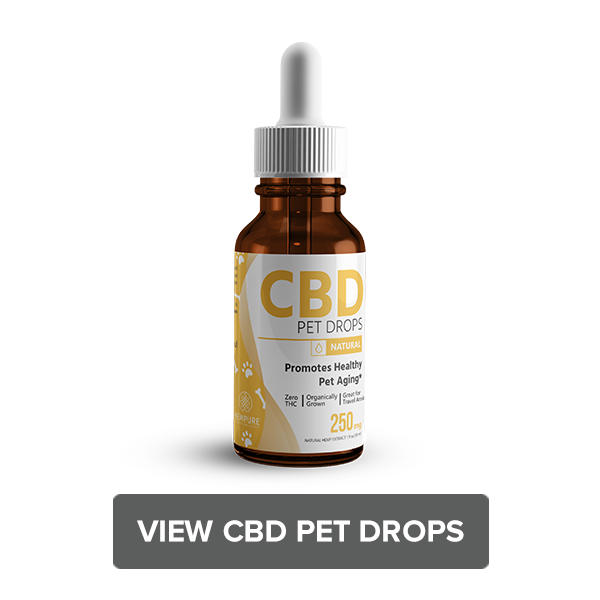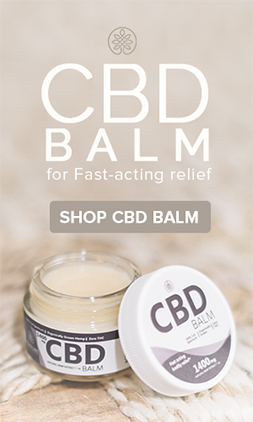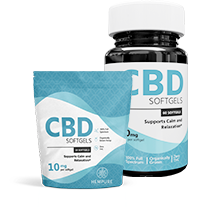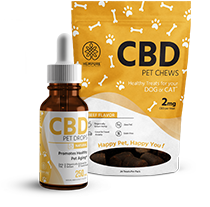Can CBD help with your dog's hotspots?
Sabina King on Jul 1st 2020
 One of the most common yet most uncomfortable issues dogs suffer from are moist dermatitis or dog hotspots. If you haven’t heard of it yet, lucky you! These are red, irritated, and sometimes oozy spots in a dog’s skin – either exposed or hidden under fur. What makes hotspots so frustrating for pets and owners alike is their resilience – even when you get rid of one, another may appear just as quickly. We’re going to break down how and why hotspots occur, and why CBD might potentially help.
One of the most common yet most uncomfortable issues dogs suffer from are moist dermatitis or dog hotspots. If you haven’t heard of it yet, lucky you! These are red, irritated, and sometimes oozy spots in a dog’s skin – either exposed or hidden under fur. What makes hotspots so frustrating for pets and owners alike is their resilience – even when you get rid of one, another may appear just as quickly. We’re going to break down how and why hotspots occur, and why CBD might potentially help.
Why do dog hotspots occur?
Ever had an insect bite that was on its way to healing, until you scratched it and got it sore and irritated? That’s kind of the way dog hotspots work. One of the easiest ways for a dog to get one is from some kind of tear/inflammation in the skin that is aggravated by the dog’s licking, scratching, or biting it. This leads to secondary bacterial infections. This cycle is able to sustain itself by dogs constantly trying to find relief by itching the area.
What are the triggers for dog hotspots?
- Parasites/insect bites
- Food allergies
- Atopic dermatitis
- Moisture trapped in the coat
- A dirty coat
- Contact irritants
- Stress-induced grooming
Hairier dogs are more prone to hotspots, as are dogs that live in areas of high humidity.
What do dog hotspots look like?
Various skin conditions in dogs can look similar to each other, which is why getting the area looked at by a vet is key. However, these are some indications that your dog may have a hotspot growing:
- Redness
- Swelling
- Hair loss
- Moisture in the area
- Possible discharge of pus or fluid
How can one prevent dog hotspots?
Before we move on to things that might ease hotspots, it’s worth exploring how to prevent them from developing in the first place. Even if your dog has an existing hotspot, these practices definitely won’t hurt and may prevent new ones from forming and making the situation worse.
- Get your dog tested for allergies and make sure they are kept away from any allergens.
- Bathe your dog often. There is no ideal routine for dog washing as it depends largely on size, fur length, where you live, etc., but there are plenty of resources online to help you figure out a good schedule.
- Make sure you dry off your dog completely, especially if you live in a humid area.
- Routine grooming. Making sure your dog’s hair stays a manageable length to prevent matting can help.
- Some dogs over-groom themselves due to boredom or stress. Exercise can help with both. Playing and engaging with your dog for some time every day has huge payoffs on their mental and physical health.
How to deal with dog hotspots.
The first thing you need to do if you suspect a hotspot is developing is to visit your vet. Waiting for it to resolve on its own may make the problem worse. Vets will generally do one or all of the following things:
- Trim the hair around the hotspot to prevent matting.
- Clean the area with an antiseptic solution.
- Prescribe antibiotics to stop an infection.
- Prescribe steroids to reduce inflammation.
- Recommend a collar to prevent scratching or licking.
There are also other ways to support your dog while undergoing treatment for a hotspot. One of these is CBD.
How can CBD help with a dog hotspot?
CBD is a potent calming agent, and seeing as dog hotspots are primarily an inflammatory response, applying CBD oil to a dog hotspot could provide some much-needed relief.
CBD can also be used as a preventative tool by administering it orally, keeping your pooch’s skin and coat nice and healthy.
Remember, hotspots – like most skin issues with dogs – are better to prevent than manage, especially because dogs can’t resist a good itch! If your dog’s hotspot has lasted longer than a week, or it keeps coming back, make sure to pay your vet another visit.















